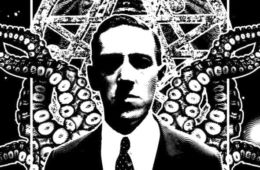The Jewish Golden Age Continues Part I: American Law, by Eric Striker

Last spring Atlantic staff writer Franklin Foer authored a well-circulated obituary to American Jewish power. The left and the right, through excesses of racial identity politics and the promulgation of populism and illiberal ideologies, are converging to squeeze Jews out of public life in the land of milk and honey: the USA.
The article relies heavily on individually relayed, anecdotal claims of anti-Semitism, largely related to popular revulsion over Israel’s behavior in the Gaza war, but is scant in the way of hard data. Many Jewish commentators have pointed to this alleged rise in anti-Semitism as the true cause of American imperial decline, the arrogant implication being that when Jewish authority figures are criticized it is because the institutions themselves are on their last legs.
The problem for Foer and others is that data reveals that Jews today enjoy virtually unopposed power within key American institutions, largely due to maintaining the overrepresentation they established after the Second World War while simultaneously replacing the white Gentile majority with a wide variety of ethnic minorities. As Jewish sources themselves admit, policies that enabled this were largely spearheaded by Jews, potentially with today’s outcome in mind. In this series, we will investigate US power nodes, how they really work, and the known-unknown forces driving American policy and life — at times against the will of the majority of the population.
Ivy League Law
Legal scholars at elite universities, such as Harvard, Yale, and Columbia, are among some of the most influential figures in America. Graduates from Ivy League law schools are often fast tracked into key advisory positions in the government and in major corporations. Eight of nine current Supreme Court Justices attended either Harvard or Yale. According to a survey by the BAR Association, 18% of all federal judges in the country earned their J.D. from Ivy League Schools, with Harvard first (111 judges) and Yale second (72).
For this reason, Ivy League law professors play a disproportionate role in sculpting the priorities and mindset of tomorrow’s managerial class, as well as functioning as behind-the-scenes brain trusts for major government, business, judicial, and international matters. Eccentric theories that could never survive general democratic scrutiny often escape from the ivory tower to impact everyday culture and law in a wide variety of ways, as seen by the history of “Critical Race Theory,” which began as a fad in the 1980s at the Harvard Law Department.
Some Jewish circles have warned that their influence has been slipping in these schools due to the “DEI” agenda classified them as “white” and sweeping them out. A 2022 entry into the SAPIR Journal of Jewish Studies claimed, with nebulous evidence, that an uptick of anti-Israel sentiment in some corners of Yale and Harvard was a product of Jews losing ground in the world of elite law.
To test this claim, let us look at the ethnic makeup of those currently engineering the leaders, policies and laws of tomorrow. The methodology used for distinguishing ethnic Jews from white Gentiles meticulously examined the biographies of Ivy League faculty members, many who are nepotistic hires (the sons, daughters, and wives of current and former professors) or have pseudo-aristocratic public wedding announcements in publications such as the New York Times.
The numbers presented are almost certainly undercount, as some professors have non-Jewish names and no background information available. For example, Harvard Law Dean John F. Manning would’ve been classified as a white Gentile by default were it not for publicly disclosed information announcing that he is Jewish. Elizabeth Hinton, a visibly black woman who teaches African-American Studies, History and Law at Yale would have been classified simply as black were it not for an interview she gave to an obscure blog about her Jewish mother.
For the sake of brevity, we will only count full time faculty for three of America’s top law schools: Harvard, Columbia and Yale. Harvard and Columbia have in particular been subject to accusations of campus anti-Semitism, which is particularly questionable as these schools host several Israeli law professors and have entire departments dedicated to advancing Israeli law and defending them from international human rights bodies.
On the other hand, white Gentiles are heavily underrepresented as professors, introducing the likelihood of anti-white discrimination at these schools at the hands of largely Jewish presidents and board members.
Harvard University Law— 120 Full-Time Professors
Jewish: 51 (43%)
White Gentile: 25 (21%)
Columbia University Law — 87 Full-Time Professors
Jewish: 35 (40%)
White Gentile: 22 (25%)
Yale University Law — 96 Full-Time Professors
Jewish: 47 (49%)
White Gentiles: 24 (25%)
It is common knowledge that Jews are well-overrepresented in the legal profession more broadly, but the number of attorneys of Jewish ancestry nationally (estimated at around 10% of all lawyers) viz-a-viz overrepresentation (and underrepresentation of white Gentiles) at Ivy League law departments defies the laws of probability, suggesting a variable besides merit — nepotism, white-exclusion, or corruption — being involved.
Raising such a possibility is by no means a conspiracy theory. It is common consensus that Ivy League schools prior to the 1960s had covert ethnic quotas aimed at Jews in both faculty positions and as students, though physical evidence of this policy is scant.
In Joining The Club: A History of Jews and Yale, Dan Oren writes that caps on Jews in higher learning were instituted in the 1920s and 30s, unofficially implemented through a “Gentleman’s Agreement” — as portrayed in the titled 1946 movie about the conspiracy of polite WASP anti-Semitism. According to Oren, the selective admissions process used by Ivy League schools today — SAT scores, an interview, favoring specific schools (usually with Protestant majorities at the time) — were hatched in a WASP effort to keep Jews at bay while avoiding accusations of anti-Semitism. For example, both the faculty hiring and student admission process included questions about a job prospects ethnicity.
Various congressional sub-committees and the Civil Rights Act put the spotlight on alleged Ivy League WASP Anti-Semitism after WWII, wiping away any vestige of such a practice. By 1971, at least 25% of Ivy League students and faculty were Jewish.
A cursory look at other Harvard Departments in the Social Sciences, Medicine, etc reveals that Jews remain roughly a quarter of the faculty. But in law, perhaps the most politically powerful discipline, they approach almost half of the professorship in many cases.
Looking at this dynamic, we can conclude that Jews have been largely immune from policies such as Affirmative Action and DEI. Those suffering the brunt of Ivy League race quotas against whites today appear to be largely Gentiles, especially males, whose previous proportional representation among both students and faculty has been replaced by women and minorities. Ron Unz’s study of Jewish in-group favoritism and racism against white Gentiles in academia focused on student demographics, but the same informal policy likely applies, potentially more intensely, when selecting for professorships.
Private Endowments
Aside from discrimination enforced by winks and nods, another factor in high Jewish overrepresentation could be linked with the process of endowed professorships. The way this works is private donors provide millions of dollars in grants set-aside to hire professors to specialize in certain fields — at Harvard Law the most common private endowments promote LGBT, Civil Rights and Anti-Racism, Criminal Justice Reform and Israel-related causes — until they retire.
Commentator Daniel Pipes has singled out sponsored professorships as a main conduit for academia’s decline, often allowing professors selected to dedicate themselves to political activism or eccentric niche interests of little intellectual value. It is through this private financial arrangement that often socially destructive ideas are cultivated.
Could the ethnic nepotism that WASPs once practiced via policies such as legacy admissions at the Ivies continue today among Jews? In 2019, it was found that 43% of “white” Harvard students were non-meritocratic admissions, such as the children of staff members or members of the “Dean’s Interest List,” where family members of students make large financial contributions to the school in exchange for their children being admitted.
As for the Jews on staff at the aforementioned schools, they are largely affiliated with endowments donated by wealthy Jews, often in FIRE industries (finance, insurance and real estate) and big business.
For example, Professor Gabriella Blum, a graduate of Tel-Aviv University, is a Rita E. Hauser Professor of Human Rights and Humanitarian Law. Blum’s biography says she has worked as an advisor to the Military Advocate General’s Corps in the Israel Defense Forces, as well as a Strategy Advisor to the Israeli National Security Council.
Blum’s salary, professorship, and research at Harvard is funded by a grant provided to the school by cable television mogul Gustave Hauser and his wife, Rita Hauser, an avid Zionist once involved in negotiations with Yasser Arafat. Though in spirit, these grants are supposed to provide intellectual freedom regardless of a discipline’s popularity and economic viability, it cannot be a coincidence that Blum happens to share the Hauser family’s passion for advancing the interests of the state of Israel.
Of Harvard law’s 81 existing endowed professorships, 42 (51%) came from Jewish family estates and businesses. An astonishing 41 of Harvard’s 51 Jewish law professors were positions purchased by these wealthy patrons.
Private donors exercise enormous power over who gets to work at Harvard, as billionaire Bill Ackman’s successful campaign to fire Claudine Gay over her insufficient support for Israel revealed. No Harvard professor is immune to the executive oversight that donors enjoy, as seen by the school administration’s sabotage of star professor Cornel West’s tenure track over his views on the Israel-Palestine conflict in 2021.
The American government itself has also been involving itself in the affairs of these private universities on behalf of Jewish interests. Three Columbia deans were recently terminated in a purge led by the US Congress, which used its power to mass subpoena the personal text messages of professors and then publicized them. The texts do not include instances of direct ethnic hatred of Jews, but both Columbia’s weary Arab president and government officials pressuring her declared them to be guilty of “anti-Semitic tropes.”
Finance, government and media have not let up on their crusade against so-called campus anti-Semitism, which some observers have criticized as a witch hunt against liberals who are critical of Israel.
Student Representation and Impact
Accurate data on Harvard’s Jewish student body has become more dubious in recent years due to classifying students by professed religion rather than ethnicity (most young Jews are secular or irreligious). Circumstantial evidence suggests there has been no change in the historical percentage of Jewish students, at least in law, as the Harvard Jewish Law Students Association currently counts 400 members out of the current student body population of 1,900.
Generally speaking, there is not a major difference between the quality and intensity of the curriculum at Harvard Law compared to a more broadly accessible, high quality state law school, yet as previously mentioned, Harvard and Yale graduates enjoy a heavy bias in their favor for powerful political positions due to the supposed Harvard Mystique — the branding. The Jewish overrepresentation at these law schools, henceforth, allows Jews to personally and ideologically influence American federal courts well-beyond their population size, which has deep implications for civil liberties and rights in America.
One 2017 study by Sepehr Shahshahani and Lawrence J. Liu found that 19% of all federal appellate judges officially professed the Jewish religion, showing massively outsized influence. By comparison, 45% of federal appellate judges listed their religion as Protestant, while 28% were Catholic, roughly in proportion with the prominence of these faiths among the US population.
Though many would dismiss the suggestion that Jewish judges could systematically exercise biases perhaps out of line with the general American population as anti-Semitism, a 2017 Cornell Law paper by Jeffrey Rachlinski and Andrew Wistrich found exactly that.
In Rachlinski and Wistrich’s exhaustive study of American legal decisions, they found that Jewish judges made legal decisions that sided with minorities at a much higher rate than Catholic and Protestant judges. On questions of race, LGBT, freedom of religion, and so on, Jews overseeing legal decisions were generally on what is understood the left to far left, while Catholic and Protestant judges were either more conservative on some issues or held a greater diversity of opinion.
Whether the Jewish community is happy with the current state of the American empire or not, there is no evidence that they are being excluded or persecuted in Ivy League schools or that Jewish involvement in US law is declining. While elite campuses and judgeships have become more racially diverse, it appears that this rise of minority representation has largely occurred at the expense of white Gentile representation. With no clear ethno-cultural majority in opposition, the more organized large Jewish minority suddenly becomes a plurality, exercising power more freely and authoritatively today than ever before.



